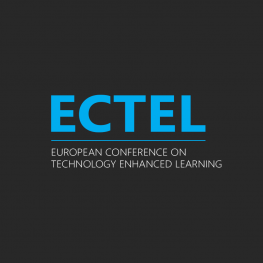Speakers
Roger Azevedo
University of Central FloridaStart
16/09/2022 - 11:00
End
16/09/2022 - 12:00
Keynote: Fostering Self-Regulated Learning with Emerging Educational Technologies? Challenges and Opportunities
Chair:  TBD
TBD
Self-regulated learning (SRL) is an essential predictor of students’ learning, problem-solving, reasoning, and understanding across tasks, domains, and contexts. Cognitive, affective, metacognitive, motivational, and social SRL processes play a crucial role in students’ ability to monitor and regulate their SRL processes while using emerging technologies (e.g., serious games, immersive environments) accurately and dynamically. However, the widespread proliferation of emerging technologies is outpacing empirical evidence regarding their effects on students’ learning, reasoning, problem-solving, and understanding across tasks, domains, and contexts. We argue they emerging technologies have the potential to foster SRL by measuring, detecting, tracking, modeling, and inferring these processes using multimodal data (e.g., log files, eye movements, facial expressions of emotions, physiological data) as well as other data and assessment measures which together can be used to provide real-time, adaptive scaffolding and feedback to students. However, despite the potential of emerging technologies, they pose severe challenges because many are not designed with such capabilities, and therefore their educational effectiveness may be severely limited. In this talk, I will focus primarily on the (1) conceptual, theoretical, methodological, analytical, and educational implications of emerging technologies on fostering students’ SRL and (2) implications for researchers, learners, and educators to promote SRL with emerging technologies.
About Roger Azevedo
Roger Azevedo is a Professor in the School of Modeling Simulation and Training at the University of Central Florida. He is also an affiliated faculty in the Departments of Computer Science and Internal Medicine at the University of Central Florida and the lead scientist for the Learning Sciences Faculty Cluster Initiative. He received his PhD in Educational Psychology from McGill University and completed his postdoctoral training in Cognitive Psychology at Carnegie Mellon University. His main research area includes examining the role of cognitive, metacognitive, affective, and motivational self-regulatory processes during learning with advanced learning technologies (e.g., intelligent tutoring systems, hypermedia, multimedia, simulations, serious games, immersive virtual learning environments). More specifically, his overarching research goal is to understand the complex interactions between humans and intelligent learning systems by using interdisciplinary methods to measure cognitive, metacognitive, emotional, motivational, and social processes and their impact on learning, performance, and transfer. To accomplish this goal, he conducts laboratory, classroom, and in-situ (e.g., medical simulator) studies and collects multi-channel data to develop models of human-computer interaction; examines the nature of temporally unfolding self- and other-regulatory processes (e.g., human-human and human-artificial agents); and designs intelligent learning and training systems to detect, track, model, and foster learners, teachers, and trainers’ self-regulatory processes. He has published over 300 peer-reviewed papers, chapters, and refereed conference proceedings in the areas of educational, learning, cognitive, educational, and computational sciences. He was the former editor of the Metacognition and Learning journal and serves on the editorial board of several top-tiered learning and cognitive sciences journals (e.g., Applied Cognitive Psychology, International Journal of AI in Education, Educational Psychology Review, European Journal of Psychological Assessment). His research is funded by the National Science Foundation (NSF), Institute of Education Sciences (IES), National Institutes of Health (NIH), and the Social Sciences and the Humanities Research Council of Canada (SSHRC), Natural and Sciences and Engineering Council of Canada (NSERC), Canada Research Chairs (CRC), Canadian Foundation for Innovation (CFI), European Association for Research on Learning and Instruction (EARLI) and the Jacobs Foundation. He is a fellow of the American Psychological Association and the recipient of the prestigious Early Faculty Career Award from the National Science Foundation.

